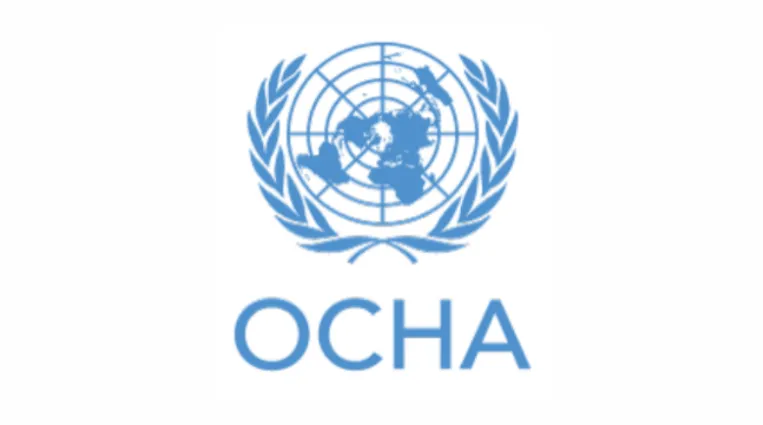Myanmar Humanitarian Update No. 29 | 6 May 2023

This regular update, covering humanitarian developments up to 30 April, is produced by OCHA Myanmar in collaboration with the Inter-Cluster Coordination Group and UN agencies. Response figures are based on self-reporting by organizations to clusters. The next humanitarian update will be issued at the end of May 2023.
HIGHLIGHTS & KEY MESSAGES
• Ongoing hostilities across Myanmar continue to endanger civilians, increase humanitarian needs and drive new displacement.
• More than 1.8 million remain displaced across the country. In the Northwest, the number of internally displaced people (IDPs) has exceeded 1 million.
• New displacement was triggered after an airstrike in Sagaing on 11 April in which more than 170 people, including children, were killed.
• Humanitarian operations continue to be hampered by physical and administrative obstacles.
• Camp closure and encouragement to return have continued despite protection concerns from displaced people. In Rakhine, the de facto authorities started relocating families from Kyauk Ta Lone camp to the new relocation site and aim to close the camp by mid-May.
• Acute Watery Diarrhoea (AWD) outbreaks were reported in IDP camps in Demoso and Hpruso townships in Kayah and in southern Shan in March. The risk for AWD outbreaks remains high ahead of the monsoon season.
• Therapeutic nutrition and micronutrient supplies are at risk of running out in September due to a combination of import taxation issues and underfunding.
• Four months into 2023, the US$764m Myanmar Humanitarian Response Plan is less than ten per cent funded. Some clusters have received no funding so far this year and are operating only using carryover funding from the end of 2022 which will soon run out. Generous funding is imperative to meet the needs across Myanmar.
KEY FIGURES
1.8M
Total people currently internally displaced across Myanmar
1.5M
People currently displaced by clashes and insecurity since February 2021
328K
People internally displaced due to conflict prior to February 2021, mainly in Rakhine, Kachin, Chin, and Shan
60K
Civilian properties estimated burnt or destroyed since February 2021.
SITUATION OVERVIEW
The security and humanitarian situations in Myanmar have continued to worsen amid ongoing fighting across multiple states, particularly in Kachin, the Northwest and Southeast. There are now more than 1.8 million displaced people across the country, as of 1 May, according to UN figures. IDPs are in urgent need of critical and lifesaving assistance. Humanitarian partners on the ground are responding to their needs, using various modalities in the face of mounting restrictions and risks.
Moves continue by the de facto authorities to close IDP camps and encourage returns continue in various parts of the country, including Kachin, Shan, Chin and Rakhine. Many IDPs report that they do not feel safe returning to their places of origin due to ongoing fighting, explosive ordnance risks, interruptions to services and lack of livelihoods. The movement of IDPs out of the Kyauk Ta Lone (KTL) Camp in Kyaukpyu township in Rakhine has begun with plans to have the camp closed by mid-May. In northern Shan, the closure of 15 IDP camps in Kutkai, Namhkan and Namtu townships is underway, and in southern Shan, displaced families from Kayah who were displaced in Nyaungshwe township had to move to other sites in April.
Humanitarian partners continue to provide critical and lifesaving assistance to affected and displaced people across the country, prioritizing 4.5 million out of the 17.6 million people in need in 2023. Simultaneously, the UN and its humanitarian partners continue to advocate for the end of violence, unimpeded and predictable access to people in need, and safe and voluntary return of IDPs. Generous funding of the humanitarian response, as outlined in the US$764m Myanmar Humanitarian Response Plan is urgently required.
View the original
Announcements
28 February 2025
Asian NGO Network on National Human Rights Institutions , CSO Working Group on Independent National Human Rights Institution (Burma/Myanmar)
Open letter: Removal of the membership of the dis-accredited Myanmar National Human Rights Commission from the Southeast Asia National Human Rights Institution Forum

Progressive Voice is a participatory rights-based policy research and advocacy organization rooted in civil society, that maintains strong networks and relationships with grassroots organizations and community-based organizations throughout Myanmar. It acts as a bridge to the international community and international policymakers by amplifying voices from the ground, and advocating for a rights-based policy narrative.